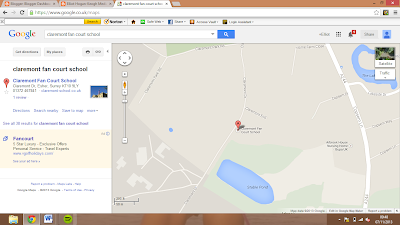DEFINITION OF CALIFORNICATION:
The process by which the American television and film industry, for the most part based in California, spreads their own highly sexualized, consumer driven, version of American culture that heavily emphasizes sex, violence, celebrity, and youth as both virtues to be extolled and goals to be achieved. Ignoring and often doing everything in their power to blur, if not erase, the dividing line between the fantasy of the cinemas world view and reality. This process has become pandemic with the proliferation of reality television wherein a person can achieve "Californication" without possessing any real talent but rather just the ability to make a fool of themselves on a world wide stage.
WEBSITE WHERE DEFINITION FOUND
Theodore Adorno has similar views to the creators of he song, Californication by the Red Hot Chili Peppers. Californication talks of the music and generation of today being fake, manufactured and purely for show instead of raw talent being expressed within the music industry.
Theodore Adorno (1991) says that these manufactured and "unsophisticated" products that replace critical art forms which then makes people forget about the important things such as the meaning of life and social interaction.
He also expresses the want for materialistic goods by todays generation and how image is seen as more important than anything else - similar to the lyrics of Californication.
Adorno (1903-69) argued that capitalism fed people with the products of a 'culture industry' - the opposite of 'true' art - to keep them passively satisfied and politically apathetic.
Adorno saw that capitalism had not become more precarious or close to collapse, as Marx had predicted. Instead, it had seemingly become more entrenched. Where Marx had focussed on economics, Adorno placed emphasis on the role ofculture in securing the status quo.
Popular culture was identified as the reason for people's passive satisfaction and lack of interest in overthrowing the capitalist system.
Adorno suggested that culture industries churn out a debased mass of unsophisticated, sentimental products which have replaced the more 'difficult' and critical art forms which might lead people to actuallyquestion social life.
False needs are cultivated in people by the culture industries. These are needs which can be both created and satisfied by the capitalist system, and which replace people's 'true' needs - freedom, full expression of human potential and creativity, genuine creative happiness.
Commodity fetishism (promoted by the marketing, advertising and media industries) means that social relations and cultural experiences are objectified in terms of money. We are delighted by something because of how much it cost.
Popular media and music products are characterised by standardisation (they are basically formulaic and similar) and pseudo-individualisation (incidental differences make them seem distinctive, but they're not).
Products of the culture industry may be emotional or apparently moving, but Adorno sees this as cathartic - we might seek some comfort in a sad film or song, have a bit of a cry, and then feel restored again.
Boiled down to its most obvious modern-day application, the argument would be that television leads people away from talking to each other or questioning the oppression in their lives. Instead they get up and go to work (if they are employed), come home and switch on TV, absorb TV's nonsense until bedtime, and then the daily cycle starts again.
- Adorno, Theodor W. (1991), The Culture Industry: Selected essays on mass culture, Routledge, London.
 The scene shows myself driving into the distance, followed by a tracking and zooming shot. As the car gets further away from the camera, Elliot (sitting in the passenger seat) carelessly throws a handful of money out the window.
The scene shows myself driving into the distance, followed by a tracking and zooming shot. As the car gets further away from the camera, Elliot (sitting in the passenger seat) carelessly throws a handful of money out the window. Here is a picture of the tripod and the car we were using during the filming of our first shoot - which was the money throwing out the window scene. The weather was sunny and crisp and therefore it was an ideal time to film this scene as we could see everything clearly when filming and reflected the Californian image.
Here is a picture of the tripod and the car we were using during the filming of our first shoot - which was the money throwing out the window scene. The weather was sunny and crisp and therefore it was an ideal time to film this scene as we could see everything clearly when filming and reflected the Californian image.  We used a normal tripod to film the car and simply zoomed in and out to follow the car successfully rather than having to follow the car in order to get the shot we wanted, as that would have been hard to do and we may not have got a clear shot.
We used a normal tripod to film the car and simply zoomed in and out to follow the car successfully rather than having to follow the car in order to get the shot we wanted, as that would have been hard to do and we may not have got a clear shot. 




